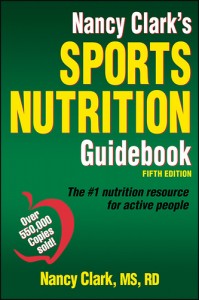What’s the Real Scoop on Sugar and Athletes?
Fueling well for soccer: Soccer players are hungry for nutrition information on how to achieve top game-day performance.
Recently, it has been discovered that the sugar industry paid off Harvard researchers in the 1960s to point diet’s poison pen at Fat instead of Sugar. So we thought we should ask, “Is sugar poison to athletes?” Perhaps the critical bottom line is what a soccer player eats on a regular basis and the total of the calorie consumed — not the occasional Gatorade or candy bar.
Although some athletes think cutting sugar out is the best way to stay fit, soccer players should take all the nutritional information into account. Here is SoccerToday’s Sports Nutritionist Nancy Clark exclusive report on the sugar and if it is really the big evil culprit we think.
Too many soccer players have deemed sugar to be the evil enemy. They talk about sugar as if it is a drug:
- I don’t do sugar; it too fattening.
- I stay away from juice. It has too much sugar.
- I buy all-natural peanut butter; just nuts, no sugar.
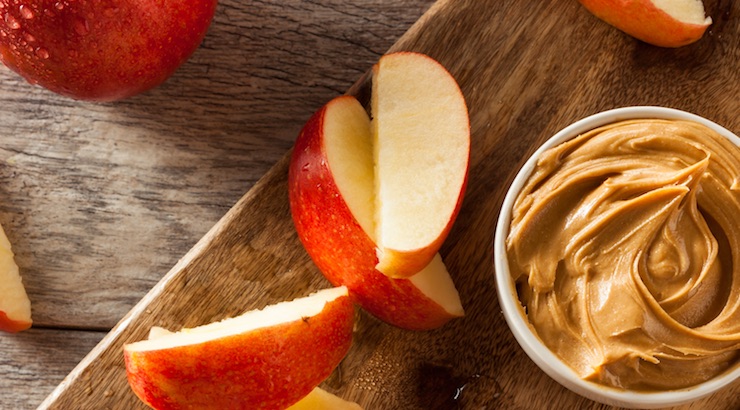
If you are a soccer player on the anti-sugar bandwagon, please keep reading. The reality is, most of the sugar is evil- fattening-and-bad-for-you hype is targeted to the masses of overfat, underfit people whose bodies handle sugar far differently than do the bodies of lean, fit soccer players.
Most soccer athletes can eat reasonable amounts of sugar guilt-free.
If you are “addicted to sugar” and have a “wicked-bad sweet tooth,” the chances are sugar is the symptom; the problem is you have simply gotten too hungry. When the body is short on fuel, it starts to crave sweets. It needs quick energy to feed the brain: sugar! The solution to preventing afternoon and evening sweets cravings is to eat heartily at breakfast and lunch.
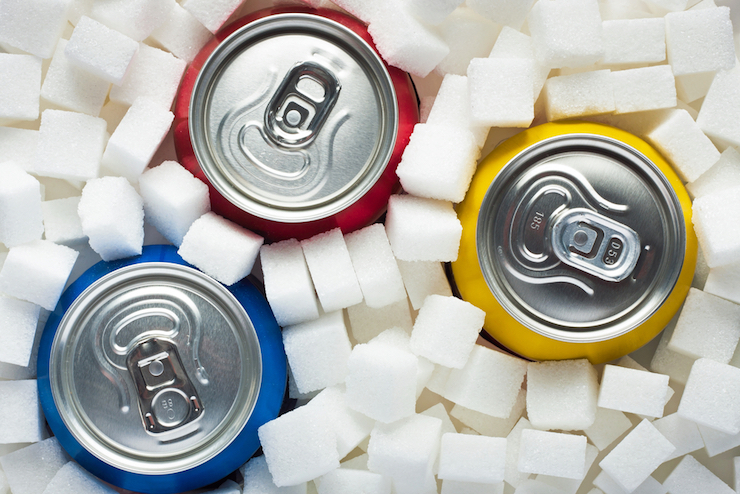
Most soccer players should target at least 600 to 900 calories at those meals, and then have a 200-400-calorie snack before an afternoon soccer practice. Those satiating meals will curb the urge for a sugar-fix — as well as enhance your sports performance.
Is sugar evil for athletes?
Yes and no. All depends on how much …. Here’s a primer on Sugar 101:
Sugars and starches are both carbohydrates and are biochemically similar.
- For example, an unripe banana is starchy. As the banana, or any fruit ripens, it becomes sweeter as the starch converts into sugar.
- In comparison, peas and other vegetables are sweet when young and their sugar converts into starch as they mature.
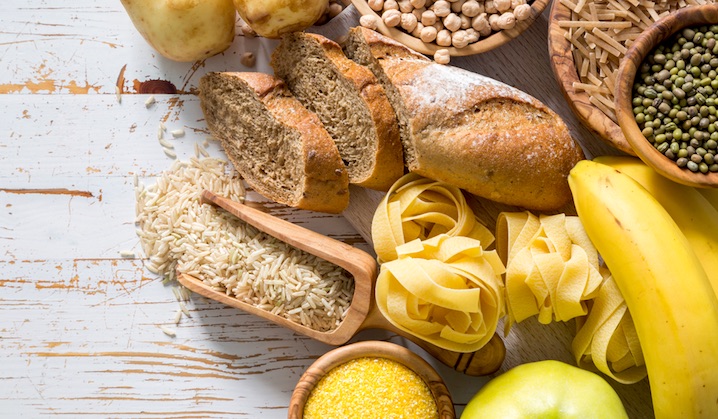
All forms of carbohydrate – fruits, vegetables, grains, lactose milk, refined sugars, and starches digest into the simple sugar glucose.
Glucose travels in the blood and, with the help of insulin, gets transported into the muscles for fuel.
Regardless of whether you eat sugary candy or starchy quinoa, the end product shows up in the blood as glucose. Some of that glucose feeds your brain; some of it fuels your muscles; and any extra gets stored in muscles as glycogen, ready to be used for fuel during your next workout.
Sugars and starches are both excellent sources of muscle fuel—but unequal sources of nutrients. For example, the sugar in sport drinks provides “empty calories” with no nutritional value.
In contrast, the sugar in orange juice is accompanied with vitamin C, folate, potassium, and many other vitamins, minerals, and plant compounds that contribute to good health.
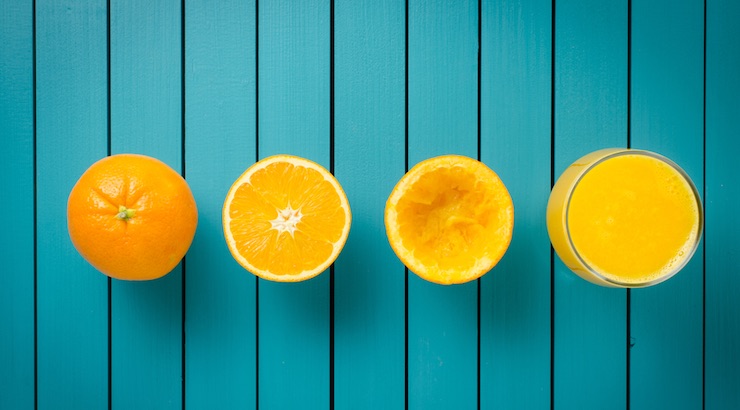
Yes, hungry soccer players who want to maintain or gain weight can appropriately include 100% fruit juices in their sports diet. Juice can easily boost energy intake, refuel depleted muscles, increase nutrient intake, and enhance athletic performance.
How much sugar is ok?
Even though refined sugar adds nutritionally empty calories to a sports diet, you need not eat a sugar-free diet to have an excellent diet. An athlete’s diet can accommodate 10% of calories from refined sugar, according to the World Health Organization’s guidelines.
That’s about 250 to 400 calories from refined sugar for most soccer players. If you consume a lot of sports drinks, gels, and sports candies—as well as other sweets—you can easily consume more than your quota.
Moderation is a key word when it comes to sugar!
What about high fructose corn syrup?
High fructose corn syrup (HFCS) is a comprised of 45% glucose, 55% fructose—the same as honey and similar to white sugar (50% glucose, 50% fructose). Athletes commonly deem HFCS to be evil and fattening. It is less evil and less fattening than portrayed by the media.
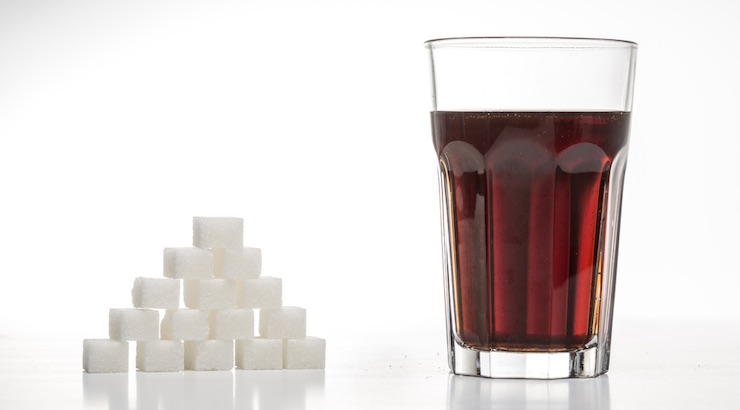
The negative hype about corn syrup applies primarily to overweight, underfit folks who consume excessive calories of, let’s say, Big Slurpees and Skittles. Those lack-luster calories could certainly be better spent on nutrient-rich fruits, veggie and whole grains. Yet, I question if a soccer player really needs to fret about a few calories of HFCS in ketchup.
Is sugar fattening?
Despite popular belief, sugar is not inherently fattening. Excess calories at the end of the day are fattening.
Excess calories of sugar are actually less fattening than excess calories of fat.
That’s because converting excess calories of sugar into body fat requires more energy than does converting excess calories of dietary fat into body fat. This means, if you are destined to be gluttonous and want to suffer the least weight gain, indulge in sugary candy or soda instead of ice cream! But, please, do neither.
What about sugar “highs” and “lows”?
Unlike the average person who is physically unfit and out of shape, most soccer athletes can metabolize sugar without highs and lows. That’s because exercise enhances the transport of sugar from your blood into your muscles—with minimal insulin.
An unfit body needs more insulin, and that can lead to the “crash”.
The most common reason for “sugar crashes” among soccer players relates simply to running out of fuel. The shakiness and sweats are because the athlete did not eat enough food earlier in the day to maintain normal blood glucose levels; the brain is now demanding a quick fix.
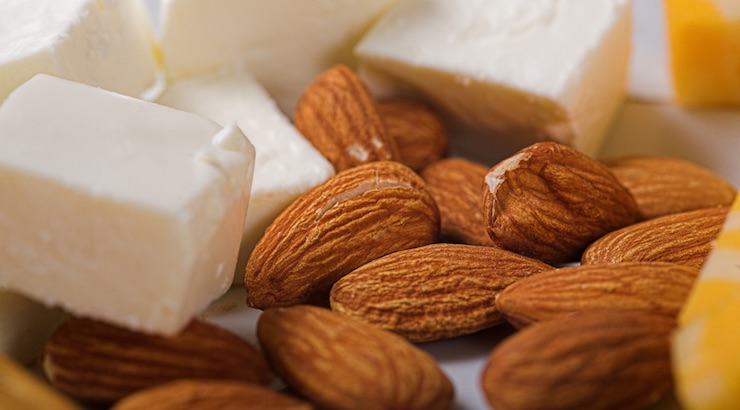
If you “crash” after having eaten something sugary, you likely should have eaten more calories of quality foods that contain protein—such as an apple and cheese, or banana and peanut butter— instead of the candy.
You are an experiment of one
Each soccer player responds differently to sugary foods. Some feel “just fine” after enjoying a sugar fix; others feel lousy. If you feel unwell after consuming sweets, the obvious solution is to not eat them—or to eat less of them, or to add some nuts, cheese, or protein to the snack.
Consulting with a registered dietitian (RD) can be a smart way to help you figure out the role of sugar in your personal sports diet. Use the referral network at SCANdpg.org to help you find a local sports RD who can address your concerns about sugar—and your entire sports diet, for that matter—and take the confusion out of fueling well for soccer.
Article republished – Original pub date on SoccerToday 9.28.16

SIDEBAR: Nutritional and medical advice changes with new discoveries and interpretations. Always check with your medical provider and/or nutritionalist for what is best for you and your family. And research and read information on nutrition!
Sports nutritionist Nancy Clark MS RD MS, RD counsels both casual and competitive athletes in the Boston-area (Newton; 617-795-1875). Her best-selling Sports Nutrition Guidebook, and Food Guide for Soccer, as well as teaching materials, are available at www.nancyclarkrd.com.



